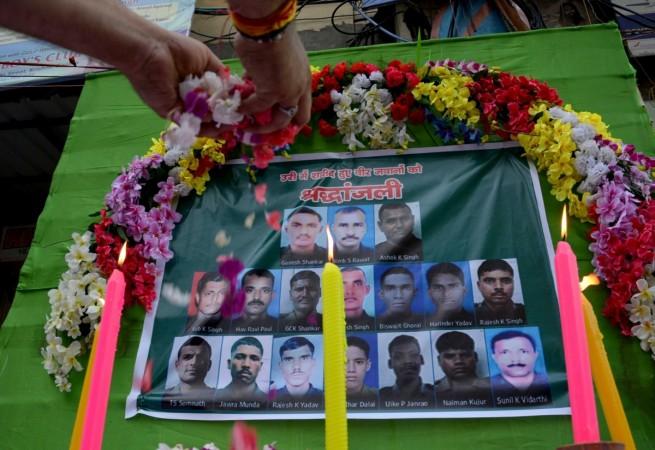
There is little hard proof to link the Uri attack to a specific jihadist group in Pakistan, National Investigation Agency (NIA) officials said.
As many as 18 soldiers were killed in the attack on Sunday and India has been under pressure to respond to Pakistan for this attack. However, the neighbouring country has denied any links to the attack.
Of the four Kalashnikov rifles recovered, none have any mark or insignia, sources told the Indian Express. The barrel-fired grenades or the launchers on the Kalashnikov's had no military markings either.
However, other materials like syringes, painkillers, food packets manufactured in Pakistan, linked the attackers to that country.
"All groups infiltrating from Pakistan carry this kind of kit," an NIA official said, "so it doesn't tell us anything very specific."
An ICom-manufactured handset was also recovered from the terrorists. It was similar to a handset found in possession of Bahadur Ali, a Pakistani arrested in July. The device had been used to contact banned group Lashkar-e-Taiba's control station. However, the ICom device doesn't ensure that the terrorists were from the LeT group.
The NIA probe at the Uri attack site revealed that the most of the fatalities took place in a cook-house and store room, which was locked and burned down with soldiers inside. The agency also said it believed that the four terrorists spent at least a day in the mountains to observe the brigade headquarters complex before launching the attack. They first shot a sentry then headed to the tents and the officer's mess.
For their probe, the NIA took DNA samples of the four terrorists before they were buried. They also have two GPS devices, one of which was damaged while another one was given to National Technical Research Organisation (NTRO) engineers.
"These will be preserved as evidence, and can be used to determine matches in future if necessary," sources told the Indian Express.
.









!['Had denied Housefull franchise as they wanted me to wear a bikini': Tia Bajpai on turning down bold scripts [Exclusive]](https://data1.ibtimes.co.in/en/full/806605/had-denied-housefull-franchise-they-wanted-me-wear-bikini-tia-bajpai-turning-down-bold.png?w=220&h=138)



